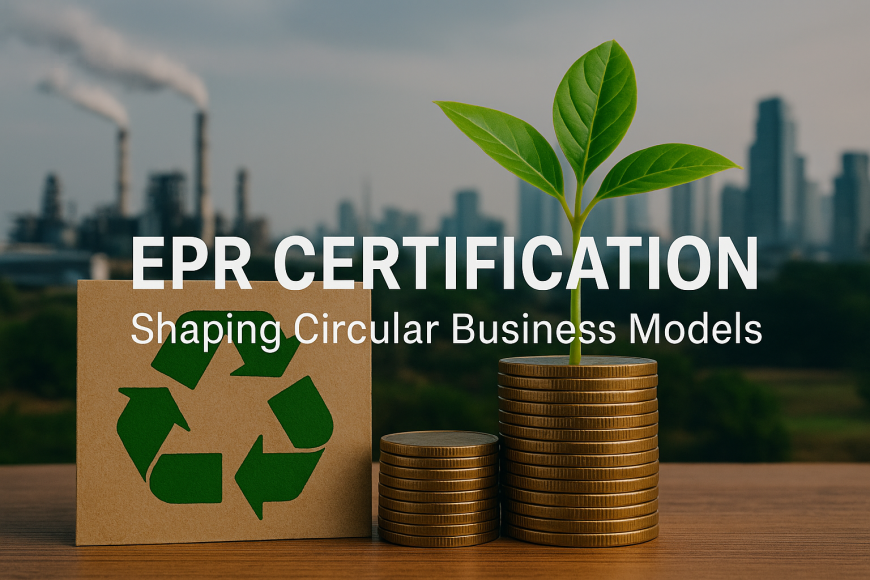Build Accountability into Business: EPR Authorization for a Sustainable Future
Ensure regulatory compliance and promote sustainability with EPR registration and EPR certification. Build a greener business through responsible waste management.

As industries expand and consumption rises, so does the volume of waste generated across sectors especially in electronics, plastics, packaging, batteries, and tyres. The challenge is no longer just about waste disposal, but about responsible waste management at the production level. That’s where Extended Producer Responsibility (EPR) comes into play, a regulatory framework that shifts the responsibility of post-consumer waste collection, treatment, and disposal to the producers themselves.
Getting EPR authorization is now a critical step for manufacturers, importers, and brand owners operating in India. Whether your business deals with electronic goods, plastic packaging, or used oil, securing EPR registration from the Central Pollution Control Board (CPCB) is not just a regulatory requirement it’s a strategic move towards sustainable operations.
The journey begins with identifying the scope of your waste footprint and preparing an action plan that outlines how your company intends to collect, recycle, and manage post-consumer waste. This plan forms the foundation of your application for EPR certification. The CPCB requires detailed documentation of your product types, projected volumes, collection mechanisms, and recycling partnerships. Working with authorized recyclers and PROs (Producer Responsibility Organizations) is key to ensuring traceability and compliance throughout the value chain.
India’s EPR framework is evolving rapidly, with stricter enforcement and growing pressure on companies to meet their annual recycling targets. Non-compliance can result in penalties, revocation of licenses, and reputational damage. On the other hand, companies with robust EPR systems in place are better positioned to attract environmentally conscious consumers, investors, and business partners.
Obtaining EPR registration is now a streamlined digital process, with most submissions handled through the CPCB’s online portal. However, navigating the legal, environmental, and technical complexities involved can be challenging. That’s why many businesses seek expert support to avoid delays and ensure smooth approval. From documentation and compliance strategy to liaising with government bodies, professional EPR consultants play a crucial role in accelerating the authorization process.
Beyond compliance, EPR certification unlocks new opportunities. It fosters innovation in product design, encourages the use of recyclable materials, and supports a circular economy. Brands that adopt sustainable practices early not only future-proof their operations but also gain a competitive edge in global markets that increasingly demand environmental accountability.
With India tightening its environmental regulations, now is the right time to act. Securing EPR authorization is more than a legal formality it’s a commitment to responsible business, environmental protection, and long-term growth. As consumers, regulators, and industries align toward greener practices, taking the lead in EPR is both a duty and a strategic advantage.
